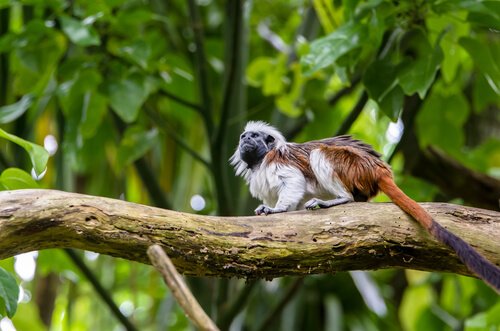Music for Animals

Although it may seem hard to believe, lots of different types of animals have a liking towards music. This is probably why there are people who have written songs dedicated to them. Whether it being out of curiosity or as a way of improving their well-being, music for animals is already a reality.
According to some researchers, such as the psychologist Charles Snowdon, different animals like different types of musical genres. You cannot play regular jazz for your cat and expect him to enjoy it, because it isn’t written in his species’ DNA. Nonetheless, there is proof that classical music can help lower a pet’s stress.
It’s absolutely wonderful that people are coming out with more music for animals. Especially because playing music for a specific species is more effective than simply playing classical music.
Music for Cats
For instance, David Teie has a project called Music for Cats that is intended to create enjoyable songs for cats. What’s interesting about is that a cat’s voice has tone variations that have nothing to do with the way humans sing.

So, based on that information, Teie created a mixture of sounds, such as cats purring and drinking milk. He then used them to create repetitions similar to those used in song-writing.
Traditionally, people believed that classical music was good for animals. This sparked researchers to demonstrate that music composed for a specific animal species would be even more effective.
To achieve this, they began by having several cats listen to music written that was specifically for their species. Then, they played classical music for the same group of cats.
Even though they played Mozart’s music, the cats responded more positively to the song that was composed for them. While the music was playing, the cats would begin interacting with the speakers by rubbing themselves against them and meowing in a relaxed manner.
Music for Monkeys
The experiments that Teie developed in cats had already been tested with other species. For example, there was a person who composed music for a species of marmoset called the Cotton-top Tamarin.
This person discovered that, while the monkeys were paying no attention to music for humans, they had a very different response to music for animals.
In this case, the music was written using high-pitched monkey vocalizations. These vocalizations are much higher than any of the tones that humans produce.
That is why the monkeys showed anxiety when listening to agitated vocals, whereas music composed with more relaxed vocalizations caused them to calm down and begin eating quietly.

Music for Animals or for Humans?
Halfway between music for animals and humans, researcher Laurel Braitman has been promoting her project “Music for Animals.”
Laurel decided to try exposing other animal species to music composed by humans, especially those in captivity. So, she selected different groups with different styles, and took them to primate sanctuaries, and other animal species reserves.
The effect is really interesting and you can watch several videos on her website, like a group of wolves that showed us that perhaps human art forms have something to do with the animal kingdom. Incredibly enough, the wolves began howling at the music. The songs seemed to have certain reminiscences to the wolves’ more ancient form of howling.
There is no doubt that several species, such as cockatoos, have a very interesting sense of rhythm, and even seem to play percussion in nature. However, there is still very little know about other animals’ musical tastes, and it seems that this could be a field of study that’s meant to improve the well-being for animals.
Everyone can try to improve the lives of animals a bit by playing some music. Be careful what you choose because certain genres may frighten your pet more than relax him.
